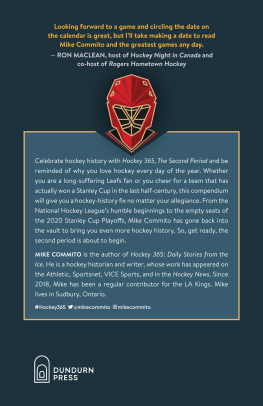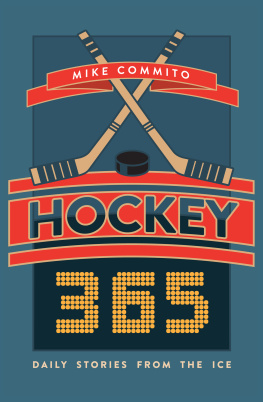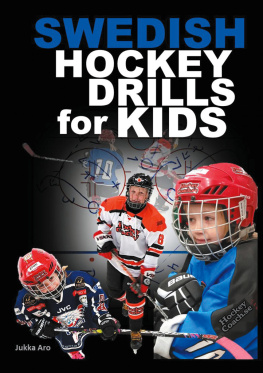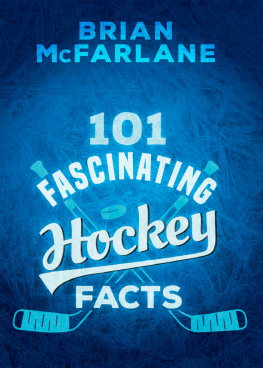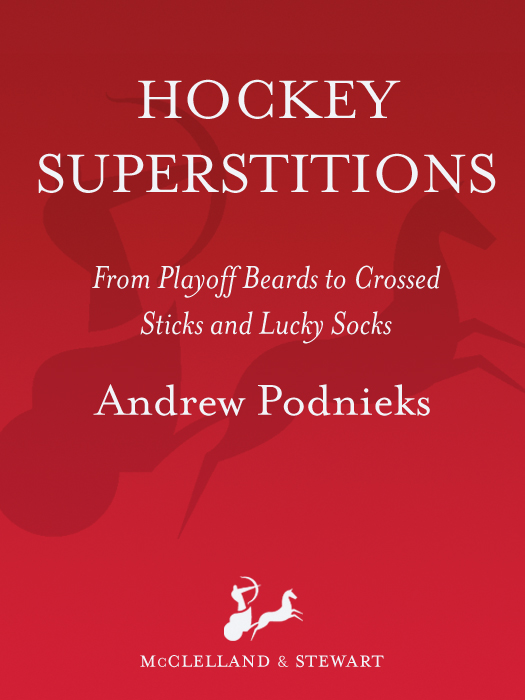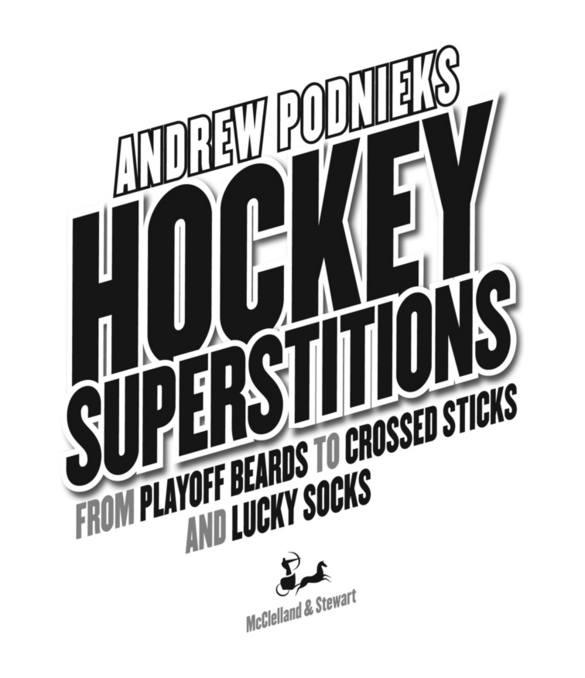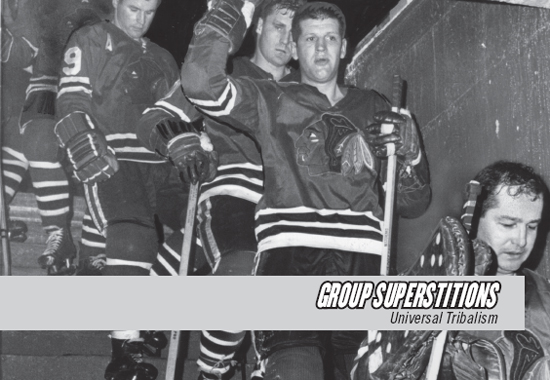Andrew Podnieks is the author of more than fifty-five books on hockey.
The following is a select list:
Canadian Gold: 2010 Olympic Winter Games Ice Hockey Champions
Honoured Canadiens
Players: The Ultimate A-Z Guide of Everyone Who Has Ever Played in the NHL
The Complete Hockey Dictionary
World of Hockey: Celebrating a Century of the IIHF
A Day in the Life of the Maple Leafs
Canadas Olympic Hockey History, 1920-2010
A Canadian Saturday Night
Portraits of the Game: Classic Photographs from the Turofsky Collection at the Hockey Hall of Fame
The NHL All-Star Game: Fifty Years of The Great Tradition
Copyright 2010 by Moydart Press
All rights reserved. The use of any part of this publication reproduced, transmitted in any form or by any means, electronic, mechanical, photocopying, recording, or otherwise, or stored in a retrieval system, without the prior written consent of the publisheror, in case of photocopying or other reprographic copying, a licence from the Canadian Copyright Licensing Agencyis an infringement of the copyright law.
Library and Archives Canada Cataloguing in Publication
Podnieks, Andrew
Hockey superstitions : from playoff beards to crossed sticks and lucky socks / Andrew Podnieks.
eISBN: 978-0-7710-7109-6
1. HockeyHistoryMiscellanea. 2. Superstition. I. Title.
GV846.5.P624 2010 796.962 C2010-901567-3
We acknowledge the financial support of the Government of Canada through the Book Publishing Industry Development Program and that of the Government of Ontario through the Ontario Media Development Corporations Ontario Book Initiative. We further acknowledge the support of the Canada Council for the Arts and the Ontario Arts Council for our publishing program.
Published simultaneously in the United States of America by McClelland & Stewart Ltd., P.O. Box 1030, Plattsburgh, New York 12901
Library of Congress Control Number: 2010927463
McClelland & Stewart Ltd.
75 Sherbourne Street
Toronto, Ontario
M5A 2P9
www.mcclelland.com
v3.1
CONTENTS
INTRODUCTION
TO SOME LESSER OR GREATER DEGREE, we are all creatures of habit and we all have rituals of one sort or another. The lowest form might be called habit, while a grade higher might be called tradition. And then there is superstition, the highest and most serious kind of ritual.
Habits are simple to understand and define. One person has a habit of twirling his key chain as he walks along the street; another is in the habit of whistling while she drives to work. But superstition might be defined as necessary habit. Someone who believes he will be hit by a car if he doesnt twirl his key chain is out-and-out superstitious. The woman who whistles on her drive to work because she believes she wont get pulled over for speeding if she does so is equally superstitious.
Over time, some habits turn into superstitions, consciously or not. Every finance minister has bought a new pair of shoes before delivering a budget because he was following a tradition of superstition. Those who hold their breath while driving by a cemetery or who avoid walking under a ladder are superstitious for reasons that, honestly, make little sense.
Some people are superstitious because they are not superstitious. Hugh Campbell, one of the greatest coaches in Canadian Football League history, once told it to me like this when I asked him if he were superstitious. No, not at all, he said, but so many people are that if they send me a good-luck charm and tell me to put it on my desk, I do because theres no point in messing with someones superstition. Ergo, he has his own form of non-superstition superstition!
Hockey players are superstitious because they are first creatures of habit. But over time, if those habits take them from house league to the National Hockey League, these simple habits take on greater meaning. Ive always put my equipment on the same way, a player might say, and since it got me to the NHL, theres no point in changing how I dress.
Therein lies the subtext, the unspoken meaning. Superstitions are merely habits that players use to create positive self-esteem, to make them feel like if they do this and this, they will succeed. If players can execute a series of actions that will help them relax and make them feel like they will play better, then they will play better because they have given themselves a psychological boost.
Some superstitions stay with players their whole career; others change as often as need be to explain away a loss or understand a great game. Of course, fans also have superstitionsa favourite chair to watch the game in, a select group of friends to watch it with, a particular meal to eat when a win is required.
Deep inside, though, every playerevery personknows superstitions are thin as onion skin. They dont really determine a good game or bad, success or failure. But anything players can find and use to help them feel better, and, therefore, play better, is required conditioning at the highest level. Superstitions are silly, funny, and ridiculous, but if a player says they work, then they do!
Andrew Podnieks
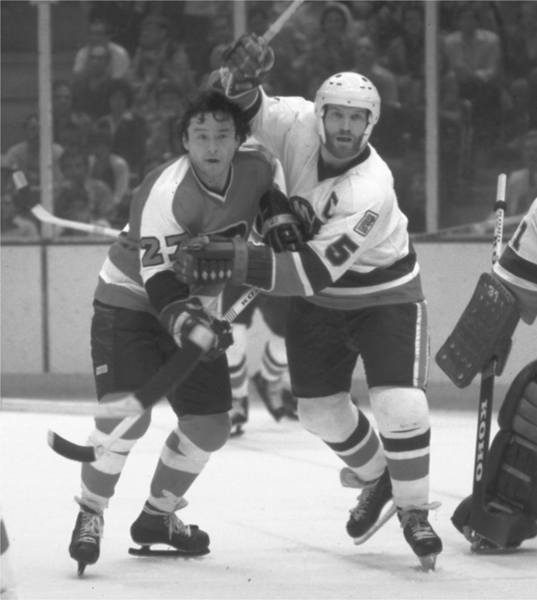
THE PLAYOFF BEARD
The playoff beard is a sure and ubiquitous sign that Stanley Cup hockey has arrived. For a dozen games in the pre-season of September through the eighty-two gruelling games that comprise the regular season, the NHLs nearly one thousand players are clean-shaven, with a few sporting a beard year-round and only a handful even crafting a moustache. But when the calendar turns to the first day of the playoffs, all players on all sixteen playoff teams put away their razors, vowing not to shave again until they have won the Stanley Cup (or, more likely, have been eliminated).
The playoff beard has come to mean several things. First, it is about the team, a way of bonding and showing each teammate that the players are all for one and one for all as they begin the quest for hockeys Holy Grail. Furthermore, it is about perseverance, about each player making a collective vow not to shave, not to care about personal appearance or tonsorial etiquette because looks dont matter, family doesnt matter, nothing matters except chasing the dream for the next two months of hockey.
Because the beard is not a feature players enjoy the rest of the year, it is also a symbol for the suffering they are willing to endure to win. Wearing a beard, especially in the spring and summer months when the playoffs are scheduled, is as unpleasant in its own way as blocking a shot, losing a tooth, or sticking up for a teammate during a game.
The beard is an outward commitment by the players to their fans that they are willing to do whatever it takes to win in the playoffs, willing to vouchsafe all personal cleanliness and focus only on bringing home the Cup. It acts as a constant reminder to each player of this promise, this dedication.



